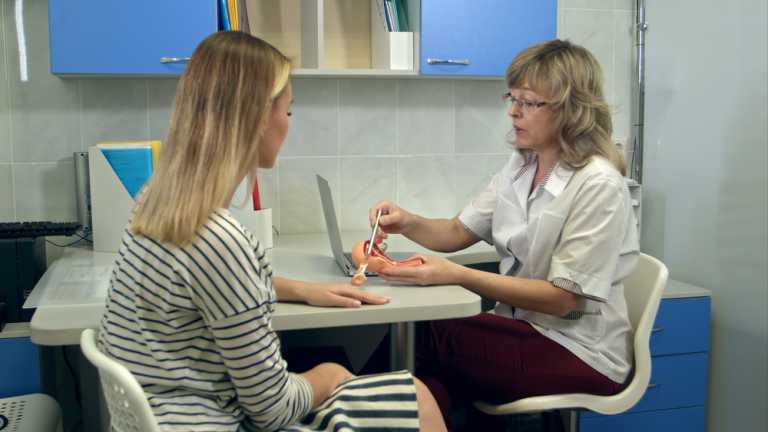Hot flashes during pregnancy can be uncomfortable and disruptive. It’s important to understand the causes, symptoms, and impact on pregnancy in order to effectively manage them.
This article provides insights on natural remedies, medical treatments, support systems, home comfort tips, and preparations for labor and delivery to help pregnant women navigate this common pregnancy symptom.
Key Takeaways
- Understanding the causes and symptoms of hot flashes during pregnancy is crucial for effective management.
- Natural remedies such as dietary changes, hydration tips, and relaxation techniques can help alleviate hot flashes during pregnancy.
- Medical treatments like hormone therapy and consulting a healthcare provider can provide additional support for managing hot flashes during pregnancy.
- Seeking support from peer groups, counseling services, and involving partners can help pregnant women cope with hot flashes.
- Maintaining comfort at home through breathable clothing, regulating room temperature, and using cooling products can help alleviate hot flashes during pregnancy.
Understanding Hot Flashes During Pregnancy
Causes of Hot Flashes
Hot flashes during pregnancy are a common experience, often described as a sudden feeling of warmth that spreads throughout the body, particularly the face, neck, and chest. These sensations can be attributed to a variety of factors:
- Hormonal Changes: The primary cause of hot flashes is the fluctuation of hormones, especially estrogen, which is common during pregnancy.
- Increased Metabolism: Pregnant women have a higher basal metabolic rate, which can lead to increased body heat.
- Blood Flow Alterations: Pregnancy increases blood volume and changes circulation patterns, sometimes resulting in hot flashes.
It’s important to note that while hot flashes are typically harmless, they can be uncomfortable and disruptive. Understanding their causes can help in managing them effectively.
Each woman’s experience with hot flashes can be unique, and the intensity, frequency, and duration can vary. If hot flashes become particularly bothersome or are accompanied by other symptoms, it is advisable to consult a healthcare provider.
Symptoms to Look Out For
Hot flashes during pregnancy can be an unsettling experience, often characterized by a sudden feeling of warmth that spreads throughout the body, particularly the face, neck, and chest. These episodes can last from a few seconds to several minutes and may be accompanied by sweating and a subsequent chill as the sweat evaporates from the skin.
Recognizing the symptoms early on is crucial for managing them effectively. Here’s a list of common signs associated with hot flashes:
- Sudden warmth in the upper body
- Flushed appearance with red, blotchy skin
- Rapid heartbeat
- Perspiration, mainly on the upper body
- Feeling of chills as the hot flash subsides
While hot flashes are common in pregnancy, it’s important to be aware that they can also be a sign that something else is going on with your health. Conditions such as hyperthyroidism may present with similar symptoms, so it’s essential to consult with a healthcare provider for a proper diagnosis.
Maintaining a symptom diary can be particularly helpful in tracking the frequency, duration, and triggers of hot flashes, aiding both you and your healthcare provider in understanding the pattern and severity of your symptoms.
Impact on Pregnancy
Hot flashes during pregnancy, while generally not harmful, can significantly affect the daily life and well-being of expectant mothers. The sudden waves of heat can disrupt sleep, leading to fatigue and affecting mood and concentration. It’s important to understand that while hot flashes are a common experience, their intensity and frequency can vary greatly among women.
The management of hot flashes is crucial not only for the comfort of the pregnant woman but also for the overall health of both mother and baby. Ensuring adequate rest and stress reduction can positively impact pregnancy outcomes.
Additionally, there is no evidence to suggest that hot flashes have a direct impact on the baby’s development. However, the indirect effects, such as stress and lack of sleep in the mother, can influence pregnancy health. It is essential to address these symptoms promptly with safe and effective strategies.
Managing Hot Flashes Naturally
Dietary Changes
In my extensive experience working with pregnant women, I’ve found that dietary adjustments can significantly alleviate hot flashes. A balanced diet rich in whole foods can help regulate the body’s temperature and reduce the frequency of hot flashes. It’s essential to focus on incorporating foods that are known for their cooling properties and avoiding those that can trigger or worsen symptoms.
Here are some dietary tips to consider:
- Increase intake of fruits and vegetables: These are high in water content and can help keep the body hydrated.
- Incorporate whole grains: They provide sustained energy and help in maintaining stable blood sugar levels.
- Include foods rich in phytoestrogens: Such as flaxseeds, soy products, and certain nuts, which may help balance hormones.
- Limit spicy foods, caffeine, and alcohol: These can trigger hot flashes in some women.
Remember, each woman’s body is unique, and what works for one may not work for another. It’s crucial to listen to your body and adjust your diet accordingly, possibly with the guidance of a nutritionist or healthcare provider.
Hydration Tips
Staying adequately hydrated is crucial for managing hot flashes during pregnancy. The body’s demand for water increases as it supports the growing fetus and adjusts to hormonal changes. Here are some practical tips to ensure you maintain good hydration levels:
- Drink plenty of water: Aim for at least 8-10 glasses of water a day. Keep a water bottle handy at all times as a reminder to drink regularly.
- Incorporate hydrating foods: Foods with high water content such as cucumbers, strawberries, and watermelon can contribute to your overall fluid intake.
- Avoid caffeine and alcohol: These substances can dehydrate you and potentially worsen hot flashes.
- Monitor your urine color: It should be light yellow. Dark urine can be a sign of dehydration.
Remember, hydration is not just about drinking water; it’s about maintaining a balance. Listen to your body’s signals and adjust your fluid intake accordingly.
It’s also important to be mindful of the signs of dehydration, which can include dizziness, headaches, and dry mouth. If you experience these symptoms, increase your fluid intake and consult your healthcare provider if necessary. By staying hydrated, you can help reduce the frequency and severity of hot flashes, making your pregnancy experience more comfortable.
Relaxation Techniques
Incorporating relaxation techniques into your daily routine can be a game-changer for managing hot flashes during pregnancy. These methods help reduce stress, which is a known trigger for hot flashes. As an experienced medical professional, I’ve seen many patients benefit from the following practices:
- Deep Breathing Exercises: Slow, deep breaths can calm the nervous system and alleviate the intensity of hot flashes.
- Progressive Muscle Relaxation: Tensing and then relaxing different muscle groups can help distract from hot flashes and promote overall relaxation.
- Guided Imagery: Visualizing a cool and peaceful environment may help reduce the sensation of heat.
- Meditation: Regular meditation can lower stress levels and may decrease the frequency of hot flashes.
Remember, the key to effectiveness is consistency. Make these techniques a part of your daily life, and you may notice a significant improvement in your symptoms.
It’s important to find the relaxation method that works best for you, as each individual’s response can vary. Experiment with different techniques and consider incorporating them into your bedtime routine to improve sleep quality, which can often be disrupted by hot flashes. Consistent practice not only aids in managing hot flashes but also enhances overall well-being during pregnancy.
Medical Treatments Available
Hormone Therapy
Hormone therapy is a medical treatment that can be considered for managing hot flashes during pregnancy, although it is not commonly recommended due to potential risks to the fetus. It involves the administration of hormones, typically estrogen, to alleviate symptoms. However, it’s crucial to approach hormone therapy with caution and under strict medical supervision.
When considering hormone therapy, the following factors should be evaluated:
- The severity of hot flashes and their impact on daily life
- Any underlying health conditions that may be affected by hormone therapy
- The stage of pregnancy and potential risks to the developing fetus
It is essential to have a thorough discussion with your healthcare provider about the benefits and risks of hormone therapy to make an informed decision that prioritizes both your well-being and that of your unborn child.
Ultimately, the decision to use hormone therapy should be made on a case-by-case basis, taking into account the individual circumstances of the pregnant woman. Alternative treatments and natural management strategies should be explored before considering hormone therapy.
Medication Options
When natural management strategies do not suffice, medication options may be considered to alleviate hot flashes during pregnancy. It is crucial to approach this with caution, as not all medications are safe for use during pregnancy.
Below is a list of considerations and commonly prescribed medications that have been deemed relatively safe under medical supervision:
- Antidepressants: Certain SSRIs and SNRIs may be prescribed off-label to manage hot flashes.
- Clonidine: A blood pressure medication that can reduce the frequency of hot flashes.
- Vitamin E: Some studies suggest that Vitamin E supplements might provide relief.
Always consult with a healthcare provider before starting any medication during pregnancy. The risks and benefits must be carefully weighed, and the lowest effective dose should be sought.
It is imperative to have an open dialogue with your healthcare provider about any medications you are considering. They will take into account your medical history, the stage of your pregnancy, and the severity of your symptoms to tailor a treatment plan that is both safe and effective.
Remember, the well-being of both you and your baby is the top priority, and medication should only be used when the potential benefits outweigh the risks.
Consulting a Healthcare Provider
When experiencing hot flashes during pregnancy, it’s crucial to consult with a healthcare provider to ensure both your well-being and that of your unborn child. A medical professional can offer personalized advice and treatment options tailored to your specific needs and medical history.
During your consultation, expect to discuss:
- Your overall health and pregnancy history
- The frequency and severity of your hot flashes
- Any other symptoms or concerns you may have
- Possible treatment options and their implications for pregnancy
It’s important to be open and honest during these discussions to receive the most effective care. Remember, your healthcare provider is there to support you throughout your pregnancy journey.
Always keep a record of your symptoms and any triggers you’ve noticed. This information can be invaluable in helping your healthcare provider understand your situation and devise an appropriate management plan.
Support Systems for Pregnant Women
Peer Support Groups
Joining a peer support group can be an invaluable resource for pregnant women experiencing hot flashes. These groups provide a platform for sharing experiences, offering advice, and receiving emotional support from others who understand what you’re going through. The collective wisdom of a group can often lead to discovering new coping strategies that may not have been considered before.
- Exchange of Personal Stories: Hearing how others manage their symptoms can inspire and motivate.
- Emotional Support: Feeling understood and supported can alleviate stress, which may in turn reduce the frequency of hot flashes.
- Practical Advice: Members often share practical tips that have worked for them, from dietary changes to relaxation techniques.
It’s important to remember that you’re not alone in this journey. The shared experiences within a peer support group can foster a sense of community and belonging, which is crucial during pregnancy.
Many hospitals and community centers offer peer support groups specifically for pregnant women. Additionally, online forums and social media groups can be accessed from the comfort of your home.
When choosing a group, consider the format that best suits your needs and preferences. Whether it’s in-person meetings or virtual check-ins, the key is to find a supportive environment that resonates with you.
Counseling Services
Counseling services offer a valuable outlet for pregnant women experiencing hot flashes and the associated stress and anxiety. As a seasoned medical professional, I’ve witnessed firsthand the transformative power of therapy in managing the emotional and psychological challenges of pregnancy.
- Individual Therapy: One-on-one sessions with a licensed therapist can provide personalized strategies to cope with hot flashes and emotional well-being.
- Group Therapy: Sharing experiences with others facing similar challenges fosters a sense of community and mutual support.
- Family Therapy: Involving partners or family members can enhance understanding and support within the home environment.
It’s crucial to recognize that seeking help is a sign of strength, not weakness. Counseling can empower women to navigate pregnancy with resilience and confidence.
Remember, the goal of counseling is not just to manage symptoms but to enhance overall quality of life during pregnancy. It’s about building a toolkit of coping mechanisms that will serve well beyond the birth of your child.
Partner Involvement
The role of a partner in managing hot flashes during pregnancy cannot be overstated. A supportive partner can significantly ease the discomfort and stress associated with this symptom. It’s essential for partners to understand the physical and emotional changes that occur and to be actively involved in providing comfort and assistance.
- Education: Partners should educate themselves about the causes and effects of hot flashes to offer better support.
- Assistance: They can help by ensuring the environment is comfortable, perhaps by adjusting the thermostat or providing cool drinks.
- Emotional Support: A listening ear and a comforting presence can make a significant difference in managing stress levels.
Remember, the involvement of a partner in the management of hot flashes is not just about providing physical comfort, but also about fostering emotional well-being and a sense of partnership during this transformative period.
Maintaining Comfort at Home
Choosing Breathable Clothing
During pregnancy, your body undergoes significant changes, and hot flashes can add an extra layer of discomfort. To maintain comfort and manage body temperature effectively, it’s crucial to choose the right clothing.
Opt for lightweight, breathable fabrics such as cotton and linen, which allow your skin to breathe and can help regulate your body temperature. These natural fibers are gentle on the skin and less likely to cause irritation or overheating.
Avoid materials like polyester that can trap heat and exacerbate hot flashes. It’s also advisable to steer clear of tight clothing, which can restrict airflow and worsen the sensation of heat. Instead, select loose-fitting garments that provide ample room for air circulation.
Here’s a quick guide to help you choose the best clothing options:
- Cotton tops and dresses
- Linen pants and skirts
- Loose-fitting maternity wear
- Breathable undergarments
Remember, the goal is to stay as comfortable as possible. Your choice of clothing can have a significant impact on how you manage hot flashes during pregnancy.
Regulating Room Temperature
Maintaining a comfortable room temperature is crucial for managing hot flashes during pregnancy. As an experienced medical professional, I’ve seen firsthand how a well-regulated environment can alleviate discomfort.
Pregnant women often find relief by keeping their bedroom cool, especially at night when hot flashes can disrupt sleep. Here are some practical tips:
- Use a programmable thermostat to set a cooler temperature during the night and warmer during the day if needed.
- Keep a fan close to the bed to circulate air and provide a breeze.
- Consider using light, breathable bedding that can be easily removed or added as needed.
It’s important to remember that what feels comfortable can vary from person to person. Therefore, it’s beneficial to experiment with different temperatures to find what works best for you.
Additionally, be mindful of the humidity levels in your home. High humidity can make the air feel warmer and more oppressive, exacerbating hot flashes. A dehumidifier can help maintain a more comfortable environment.
On the other hand, if the air is too dry, which can also be uncomfortable, a humidifier may be necessary. It’s all about finding the right balance to create a soothing atmosphere that can help mitigate the intensity and frequency of hot flashes.
Using Cooling Products
In the battle against hot flashes during pregnancy, cooling products can be a game-changer. These items are designed to provide immediate relief by drawing heat away from the body and promoting a sense of coolness. Here are some effective cooling products that pregnant women may find beneficial:
- Cooling gels and lotions: Products containing natural ingredients such as aloe vera or peppermint oil can offer a soothing, cooling sensation when applied to the skin.
- Cooling pillows and mats: Sleeping with these can help maintain a comfortable body temperature throughout the night.
- Portable fans: Handheld or battery-operated fans can be a quick way to circulate air and reduce the feeling of heat.
It’s important to choose products that are safe for pregnancy. Always consult with your healthcare provider before trying new products, especially if they contain active ingredients.
For instance, an anti-itch lotion with natural ingredients like calamine or menthol can not only soothe itchiness but also provide a cooling effect.
Maintaining a cool environment and using these products can significantly alleviate the discomfort of hot flashes. Remember, the goal is to find what works best for you and to use these aids as part of a broader strategy to manage your symptoms.
Preparing for Labor and Delivery
Discussing Hot Flashes with Healthcare Team
As you approach labor and delivery, it’s crucial to have an open dialogue with your healthcare team about your experience with hot flashes. This conversation should be a part of your prenatal visits as you prepare for the birth of your child. Your healthcare providers can offer personalized advice and strategies to manage hot flashes during labor, which can be a particularly intense time for experiencing these symptoms.
- Timing: Note the frequency and duration of your hot flashes.
- Triggers: Identify any specific triggers that seem to exacerbate your symptoms.
- Symptoms: Describe the intensity and any accompanying symptoms.
- Relief: Share what measures have provided relief.
It’s important to communicate any concerns you have about hot flashes as they can affect your comfort and stress levels during labor. Your healthcare team can help you incorporate effective management strategies into your birth plan.
By providing your healthcare team with detailed information, they can better understand your needs and help ensure a more comfortable labor experience. Remember, your well-being is paramount, and managing hot flashes is part of maintaining your overall health during pregnancy.
Creating a Birth Plan
When preparing for labor and delivery, creating a birth plan is a crucial step that allows you to communicate your preferences and concerns to your healthcare team. Given the unpredictability of hot flashes during pregnancy, it’s essential to consider how they might affect your labor experience and what accommodations might be necessary.
- Discuss Hot Flash Management: Include a section on managing hot flashes, such as the availability of cool compresses and air conditioning.
- Pain Relief Preferences: Outline your choices for pain relief, considering how certain medications might interact with your hot flashes.
- Labor Positions: Consider labor positions that may help alleviate discomfort from hot flashes.
- Post-Delivery Care: Plan for immediate post-delivery care, ensuring you have strategies to manage hot flashes while recovering.
It’s important to remember that a birth plan is not a binding contract but a guide. Flexibility is key, as labor and delivery can be dynamic and unpredictable. Your healthcare team is there to support you, and open communication about your hot flashes will help them provide the best care possible.
Packing Essentials for Hospital Stay
As you approach your due date, preparing a hospital bag becomes a crucial step. For those experiencing hot flashes, packing must include items that provide comfort and ease during labor and post-delivery. Here’s a list to ensure you’re well-equipped:
- Lightweight, loose-fitting clothing: Choose fabrics that breathe well to help manage body temperature.
- Cooling gel packs: These can be applied to the skin for instant relief from hot flashes.
- A portable fan: Small, battery-operated fans can offer a quick breeze whenever needed.
- Hydration supplies: Pack a reusable water bottle to stay hydrated, which can help regulate body temperature.
Remember, the goal is to minimize stress and maximize comfort. Your hospital bag should reflect your unique needs during this time, especially in managing hot flashes.
Discuss your concerns about hot flashes with your healthcare team before labor. They can provide additional tips and may even adjust the room temperature to accommodate your comfort. Lastly, ensure that your partner or support person is aware of your needs so they can assist in creating a soothing environment for you.
Conclusion
In conclusion, dealing with hot flashes during pregnancy can be challenging, but various strategies and tips can help alleviate this common symptom.
It is important to stay hydrated, wear loose and breathable clothing, practice relaxation techniques, and consult with your healthcare provider for additional support. By implementing these suggestions, you can better manage hot flashes and have a more comfortable pregnancy experience.
Frequently Asked Questions
What are hot flashes during pregnancy?
Hot flashes during pregnancy are sudden feelings of warmth, which are often accompanied by sweating and a flushed face. They can be uncomfortable but are usually harmless.
Are hot flashes common during pregnancy?
Yes, hot flashes are a common symptom experienced by many pregnant women. They are often attributed to hormonal changes in the body.
When do hot flashes typically occur during pregnancy?
Hot flashes can occur at any time during pregnancy, but they are most commonly experienced in the first and third trimesters.
Can hot flashes harm the baby?
Hot flashes themselves do not harm the baby. However, if they are accompanied by other concerning symptoms, it is important to consult a healthcare provider.
What triggers hot flashes during pregnancy?
Hot flashes during pregnancy can be triggered by hormonal fluctuations, stress, anxiety, and external factors such as hot weather.
How long do hot flashes last during pregnancy?
Hot flashes during pregnancy can last for a few seconds to several minutes. The duration and frequency can vary from woman to woman.
Are there any natural remedies for managing hot flashes during pregnancy?
Yes, there are natural remedies such as staying hydrated, practicing relaxation techniques, and making dietary changes that may help alleviate hot flashes.
Should I be concerned if I experience hot flashes frequently during pregnancy?
While hot flashes are common during pregnancy, if you experience them frequently or they are accompanied by other concerning symptoms, it is advisable to consult your healthcare provider for further evaluation.




